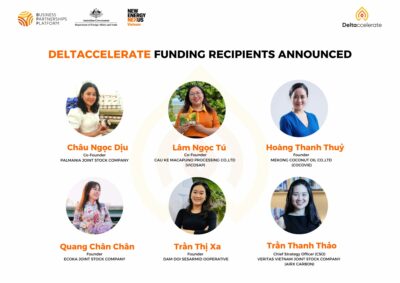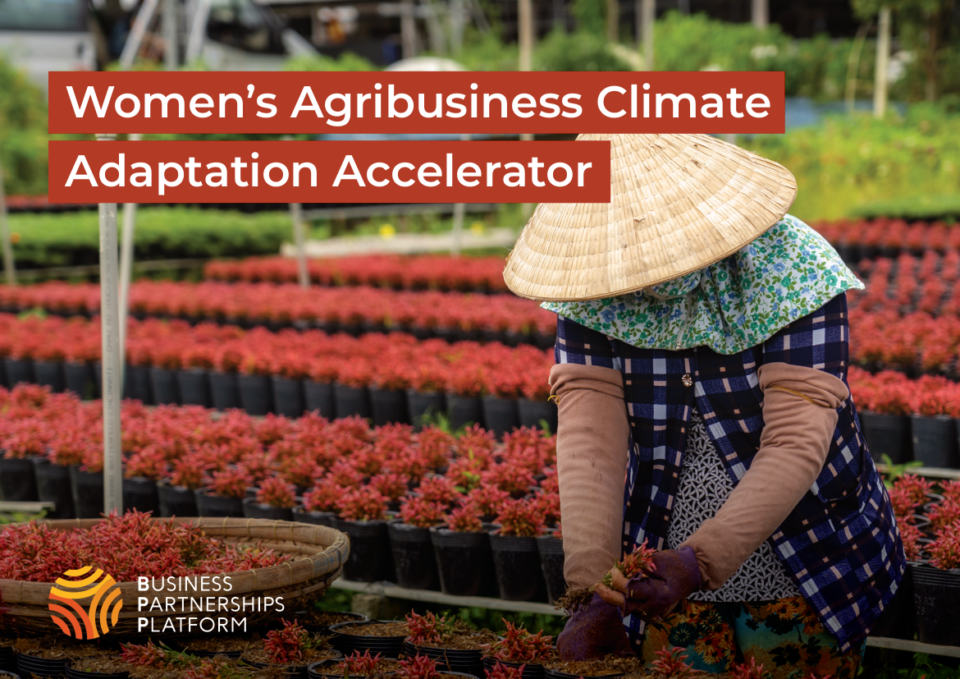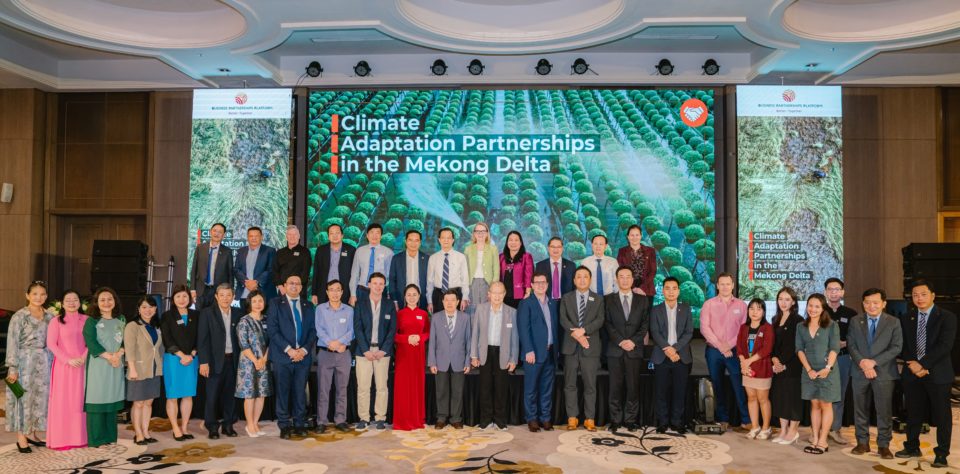What does New York City and rural Uganda have in common? Not a whole lot, except that the food system in both locations are an enormous emitter of greenhouse gas emissions – in fact the global food system contributes 30% of emissions.
Enhancing the resilience of food systems is not just a mitigation concern, but an adaptation concern, as climate-resilient infrastructure is critical for human survival with climate and economic shocks likely to cause more food inflation and hunger globally. That’s why it is essential for the clean energy sector and food sector to come together urgently to solve for food security.
Accelerating Productive Use Energy technologies in Uganda…

Oribcing Energy Cooperative Association (OCECA). A cooperative in Uganda led by 22 refugees that provides clean energy to their communities.
New Energy Nexus is seeking to address and promote Productive Use Technologies (PUEs) in our Uganda and Indonesia chapters. Although Uganda has access to enormous renewable energy resources, including solar and hydro, biomass, and wind energy, only about 40% of Uganda’s population has access to energy. In rural areas, this is less than 38%, yet over 70% of the population resides there. The agriculture sector employs 80% of the Ugandan population, 70% of whom are women and youth. However, due to limited capital in the country for clean energy technologies, energy for agriculture solutions tend to be underutilized. There is a huge opportunity for agricultural and farmer cooperatives to replace diesel-generated electricity with renewable energy to add value to their produce, increase productivity, reduce the cost of cooling, extend the shelf life of produce, and mechanize operations.
… and in Indonesia.
Indonesia, on the other hand, is mostly electrified with the electrification rate reaching more than 98% in 2018. However, access to productive use of clean energy remains low. Horticultures require direct and indirect energy inputs in the typical agriculture value chains in the production, post-harvest processing, storing and cooling that are generally energy intensive. While reducing energy consumption at these value chains is essential, other viable options in providing PUEs can help farmers in increasing their livelihood and have additional income by adding values to their agriculture products. This can be done, for example, by utilizing the energy to perform controlled drying of fruits and vegetables, off-season production through controlled irrigation, and optimizing crops by providing additional lighting.
Driving food systems change in New York City
Our New York Chapter, The Clean Fight, is currently accepting applications for its fourth cohort to decarbonise the food services industry.
Why the food services industry? Besides contributing to more than 30% of the city’s greenhouse gas emissions, food is the leading source of household consumption-based emissions. An average grocery store emits the equivalent emissions of 635 cars a year. The good news is the city has taken notice and in addition to legislative action, PlanNYC aims to reduce the emissions of city agency food purchases by 33% by 2030.
The Clean Fight, upon consultations with the community including NYSERDA, corporates, financiers, growth start-ups, and industry experts advised on this theme, supported by New York City’s LL97 to force groceries and supermarkets to drastically reduce their energy usage or face fines. Adoption, however, requires a mindset and cultural shift in a traditional and change-resistant industry.
Margins are razor thin in this sector, thus decarbonization goals can face intense push-back if the community is not brought into the solutions as a partner, not just a beneficiary. 60% of food workers are women and ethnic minorities; increasing diversity, equity, and inclusion in entrepreneurship programming is critical in addressing decarbonization goals.

Takachar, a Boston based startup turns crop and forest residues in rural communities into carbon-negative bio-products.
Empowering women agribusiness entrepreneurs in Vietnam’s Mekong Delta
New Energy Nexus Vietnam has also launched the Women’s Agribusiness Climate Adaptation Accelerator in collaboration with the Australian Department of Foreign Affairs and Trade (DFAT). Through tailored mentorship, training, access to finance, small grants, and networking support, the accelerator aims to empower women-led small and medium enterprises to navigate climate change challenges, build resilience, and contribute to the economic and social well-being of the region.
How can Entrepreneur Support Organizations (ESOs) drive a just transition in agriculture and food systems?
ESO’s such as New Energy Nexus are the connectors, funders, and accelerators for startups and small businesses around the world. They play a powerful role in convening and strategically identifying where support is needed. Here are five ways we believe ESOs can play a role in the food systems sector.
1. Financing
– ESOs can offer tailored financing solutions designed to empower smallholder farmers and agricultural cooperatives, such as affordable loans, pay-as-you-go, rent-to-own, fee-for-service models to avoid the very high capital expenditure of purchasing PUEs, such as a $700 solar irrigation pump.
– Encourage collective buying and selling of agricultural products and offer mechanization through PUEs.
– Create revolving funds where repayments from one cooperative are reinvested to finance clean energy projects in other cooperatives.
2. Community engagement
– Engage a wide range of stakeholders at the community level by providing training sessions for cooperatives and farmers, address biases in food practices, encourage collective and inclusive problem-solving, enhance financial management skills, as well as foster connections and network support.
– Create early adopters that demonstrate and locally champion technologies in their communities.
– Develop crisis response and recovery strategies together through entrepreneur networks that can quickly and readily respond to potential disasters.
3. Work with the government
– Work with the government to establish benchmarks and standards to measure and compare energy efficiency technologies for the agriculture and food sector and set industry targets.
– Support tax incentives and/or subsidies to support the food industry to adopt clean energy and sustainable practices as well as funding to support entrepreneur support programming.
– Support more comprehensive research on energy efficiency to enable more transparency and data-driven decision-making.
4. Gender equity
– Design programming that supports women’s entrepreneurship in creating technologies to address the food systems
– Enable funding support for women-led businesses
5. Address circularity in food systems
– Create programming to support anaerobic digestion companies, which utilize processes to break down organic by-waste and food waste. One of our NEX portfolio companies, Takachar, transforms waste biomass into marketable bio-products for rural communities in India.
– Create programming to support recycling nutrient-rich by-products into animal feed, compost, or fertilizers, reducing waste and enhancing soil health.
– Create programming to upcycle food by-products to explore innovative upcycling methods to convert by-products into new food products, such as turning fruit peels into snacks.
– Encourage companies to seek sustainable packaging solutions, such as recycled and recyclable materials.
– Encourage collaboration across the supply chain such as producers, processors, distributors, and retailers, to create a closed-loop system where waste and by-products are managed collectively.
Written by Aneri Pradhan, COO of New Energy Nexus with contributions from Julius Mujuni, New Energy Nexus Uganda Program Director, Diyanto Imam, New Energy Nexus Indonesia Program Director, and Nick Ng, Program Manager at The Clean Fight




